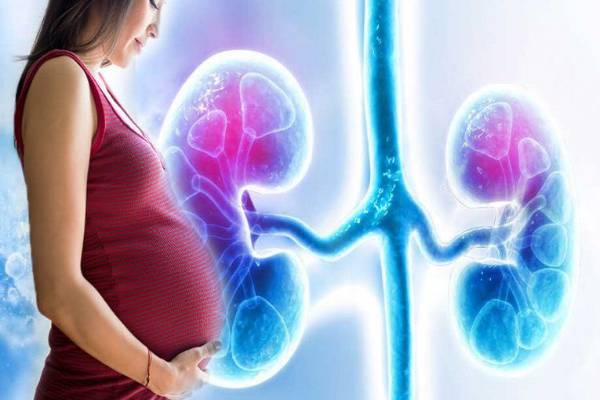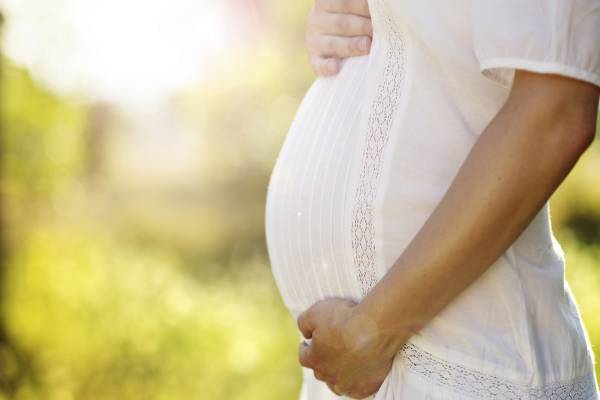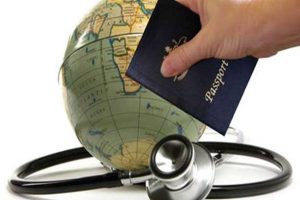Table of Contents
Women with kidney disease are unable to conceive due to a disorder of the hypothalamus. Therefore, pregnancy in women on dialysis is rare and the chance of pregnancy is from 7% to 9%. For six months after a kidney transplant, women’s fertility increases rapidly, and women who want to become pregnant can take action. People of childbearing age who do not want to become pregnant are advised to use contraception before having a kidney transplant. However, contraception is not an optimal method and there is a possibility of unplanned pregnancy. If the pregnancy occurs unplanned, it is important to see a delivery counselor as the fetus is exposed to teratogenic (traumatic) drugs and increased risk of miscarriage. After kidney transplantation, sexual function and fertility in patients improve and after about six months, the gonads return to normal.

Deciding to Get Pregnant After a Kidney Transplant
Deciding to get pregnant is completely personal. Pregnancy should be performed after careful consideration of what is necessary for the health of the mother and fetus. According to the annual report, about 55% of live births occur and the pregnancy rate is lower than the general population. According to European recommended methods, it is best to get pregnant one to two years after a kidney transplant.
Important Advises to Observe After Kidney Transplantation and Before Pregnancy
As mentioned, a kidney transplant is the best hope for people who are planning to become pregnant. The right time to get pregnant is still a matter of debate, as there is disagreement. But the remarkable thing is to seek advice before fertility and from the beginning of treatment for kidney transplantation at every appointment. Kidney medications such as sirolimus and mycophenolate should be avoided for six weeks before pregnancy. But suppressive drugs are not contraindicated in low-dose for pregnant women./ Kidney transplantation in Iran
Suitable Age for Pregnancy After Kidney Transplant
The optimal time and age for pregnancy after kidney transplantation have not yet been definitively determined. However, according to the guidelines of the Kidney Transplant Association, the appropriate gestational age is between one and two years after kidney transplantation, and the best guidelines recommend pregnancy two years after kidney transplantation.
According to statistics, women who became pregnant two to three years after a kidney transplant had the lowest live birth rate and the highest stillbirth rate. In addition, these people will suffer from the most complications of pregnancy, including gestational diabetes, preeclampsia, and hypertension. Fertility six months after a kidney transplant is also safe in some cases, but if teratogenic drugs are not used.
Pregnancy Outcome After Kidney Transplantation
Good pregnancy, delivery, and fetal health depend on factors such as the mother’s younger age, stable kidney transplant function without rejection, and controlled blood pressure.
Counseling and accuracy are needed to reduce and eliminate risks such as the risk of harm to the mother, transplant failure, and poor outcomes in the birth of the baby.
Although the outcome of childbirth and birth is desirable after kidney transplantation, the risks associated with mother and fetus increase in kidney transplant recipients. Pregnancy after transplantation carries risks such as hypertension, preeclampsia, preterm delivery, low birth weight, and cesarean section. Pregnant women who have undergone kidney transplantation should visit the obstetrics and gynecology clinic at intervals of one to two months to check for kidney function and medication levels by performing the necessary tests. . In the second and third trimesters, referrals to obstetricians and gynecologists increase and must be done every two weeks.
It should be noted that to get the best results from a kidney transplant, you should refer to a valid center. Moj Aramesh Amitis Health Tourism Company is ready to provide kidney transplantation services from the beginning to the end and will accompany you with the presence of experts in receiving the ideal result.
What is preeclampsia?
Preeclampsia is a pregnancy-related complication that occurs with symptoms such as hypertension and symptoms of damage to the kidney and liver. This complication usually occurs in the twentieth week of pregnancy and in women who have had a kidney transplant and whose blood pressure is normal. If preeclampsia is not treated, it can pose serious and even fatal risks to both mother and fetus. Pregnant women who develop this condition recover after childbirth, but in some cases, the healing process may take a little longer after delivery. Pregnant mothers who develop preeclampsia in a short period and very soon, their baby needs more time to mature, but the mother should not expose herself and the fetus to serious complications.
Sometimes postpartum preeclampsia may also occur, known as postpartum preeclampsia, which rarely occurs.
What are the symptoms of preeclampsia?
This condition may sometimes start asymptomatic. High blood pressure also develops slowly or can start suddenly.
Monitoring blood pressure is one of the most important care during pregnancy. Because the first sign of preeclampsia will be hypertension. Blood pressure above 140.90 mmHg or more, recorded twice and within four hours, is abnormal.
Other symptoms of preeclampsia include:
• Protein excretion
• Severe headaches
• Vision problems such as blurred vision, temporary vision loss, and photosensitivity
• Pain in the upper abdomen (usually below the right ribs)
• Nausea or vomiting
• decreased urination
• Decreased blood platelet levels (thrombocytopenia)
• Liver dysfunction
• Shortness of breath
When to see a doctor?
Blood pressure in pregnant women who have undergone kidney transplantation should be checked regularly to be informed of any symptoms of preeclampsia. Pregnant mothers should see a doctor or emergency room immediately if they experience severe headaches, blurred vision or other vision problems, severe abdominal pain, or shortness of breath.
Preeclampsia is known as one of the four hypertension disorders that occur during pregnancy. Three other cases of these disorders include:
Gestational hypertension:
Some pregnant women have high blood pressure if they do not have protein excretion or other signs of organ damage.
But some women with gestational hypertension eventually develop preeclampsia.
But some women with gestational hypertension end up with preeclampsia.
Chronic hypertension:
Chronic hypertension is a type of high blood pressure before pregnancy, which sometimes occurs before the twentieth week of pregnancy. However, because high blood pressure usually has no symptoms, it is difficult to diagnose when it occurs.
Chronic hypertension with upper preeclampsia:
Women who have had chronic hypertension before pregnancy will develop high blood pressure, protein excretion, and other symptoms that are harmful to their health, which is called chronic hypertension with upper preeclampsia.
Factors involved in the development of preeclampsia
Preeclampsia occurs only during pregnancy and various factors are effective in creating it, which we will describe below.
History of preeclampsia:
The risk of preeclampsia increases significantly in people with a family history of the complication.
Chronic hypertension:
People who had high blood pressure, migraine, type 1 or type 2 diabetes, or kidney disease before pregnancy are at risk for preeclampsia.
Age:
The risk of preeclampsia is higher in pregnant women who are young or over 35 years of age.
Obesity:
Obese people are more susceptible to preeclampsia.
Multiple pregnancies:
Women who are pregnant with twins, triplets, and multiples are also at higher risk for preeclampsia.
In vitro fertilization:
People who become pregnant through in vitro fertilization are more likely to develop preeclampsia.
The success rate of pregnancy after kidney transplant
According to the results of the meta-analysis of most pregnancies, in women who have had kidney transplants, pregnancy leads to the birth of a live baby. But as mentioned earlier, there are side effects for mother and fetus, and the risk of preeclampsia, stillbirth and the likelihood of cesarean section increases significantly. According to statistical analysis, a quarter of pregnant women who have previously received a kidney transplant have serious pregnancy complications such as preterm delivery, miscarriage in the first or second trimester of pregnancy, and stillbirth.
Stillbirth rates in pregnant women with kidney disease
According to studies, the rate of stillbirth in pregnant women who have had kidney disease or kidney transplantation is very high compared to the general population, which can be effective for a variety of possible reasons such as:
•
• Preeclampsia
• High blood pressure
• Protein excretion
However, it is not possible to find the exact cause of stillbirth at this time.
Cesarean section rate of pregnant women with kidney disease
Compared to the general population, the rate of cesarean section in people who have undergone kidney transplants before pregnancy and have kidney disease is twice as high as other people and about 60% to 77% percent. More than three-quarters of women who receive a kidney transplant have a cesarean section. Natural childbirth should not be prohibited for patients who have had a kidney transplant.
Gestational diabetes after kidney transplantation
The rate of gestational diabetes varies according to different geographical locations. For example, the rate of gestational diabetes in Europe reaches 8.9%. There are significant differences in the rate of gestational diabetes compared to the geographical location of diabetes susceptibility, but the increase in gestational diabetes in kidney transplant patients can be controlled using suppressive drugs.
written by: Sh. Khazaei
translated by: N. Rahimifar





